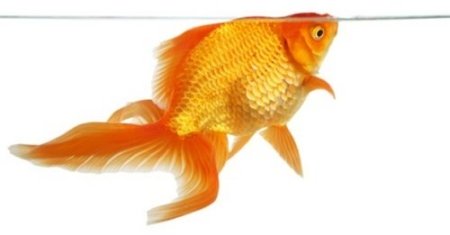| Back to Back Issues Page |
 |
|
The Goldfish Gazette, Issue #065 -- Floaty Fish May 31, 2019 |
Goldfish Care TipsA Free Monthly Resource For Goldfish Enthusiasts In This Issue
Many posts on social media Goldfish groups concern fish that are either floating to the surface, or sinking to the bottom. Floaty Fish Very rarely are these floaty fish a slim bodied variety. If a slim bodied variety is featured, it is because they have lost their buoyancy and are sinking to the bottom. Interestingly, many owners comment that this behavior, (usually floating), occurs after feeding and within a few hours the fish return to normal. I say interestingly because the owners don’t appear to consider that it could be the food that is causing the problem, or, if they realize it is, would it not be a good idea to try something else? It appears easier to post a video on Facebook, and if they are lucky, someone might suggest they change their fish’s diet. Most of the time they get advice from other enthusiasts to starve the fish for a few days and then feed vegetable matter, usually cooked peas. And there is nothing wrong with that advice. But there is usually no suggestion of throwing out the food they are feeding and use something like a gel food. What causes buoyancy problems?There are four main causes of buoyancy problems:1. Indigestion There is also mounting evidence that high nitrate levels in the water can restrict the blood vessels that surround, and supply oxygen to the swim bladder. Indigestion occurs when poor quality food causes a slow-moving blockage in the intestine. By poor quality I mean low quality ingredients or stale food. Two things can occur: 1. The food ferments in the intestine causing gas to form. This gas creates additional unwanted buoyancy Once the food passes through the intestine, normal buoyancy is restored. If the owner continues to feed poor quality food, at some point the fish will lose the ability to control its buoyancy permanently. If a fish is suddenly placed into water that is more than 5 degrees Fahrenheit, ( 2.78C) colder there is a good chance it will be chilled. Fancy varieties are particularly susceptible to this. Rarely, but it does happen, a fish in poor condition will have internal organs attacked by bacteria. Loss of buoyancy is sometimes the first indication something is wrong. Genetics play a large part in the incidence of swim bladder issues. Often this can be seen in young juveniles swimming in an odd manner, usually head down and swimming with a swaying motion. As these fish age, the problem becomes more pronounced. As they age fancy varieties generally have more swim bladder issues than do the slim bodied varieties. TreatmentsTreatment is easy if you know the cause. If after feeding, your fish start to become floaty, it is the food causing it.Change to a gel food and the problem will go away. I have read recently of one case where the owner is feeding Repashy gel food, and it is causing her fish to become floaty. I have never heard of this before, but then She wasn’t sure what type of Repashy food She was feeding, and I did ask the question if she was keeping the food refrigerated to keep it from going "off". If the fish is sinking, this indicates the swim bladders are damaged. If the nitrate level is high, change the water. If the water parameters are good, there are two possibilities, it is a bacterial attack, or it is genetic. Treat with antibiotics to eliminate the bacterial possibility. A vet can administer them by injection which gives a quicker result. If it is genetic, there is nothing you can do but make the fish as comfortable as possible. To read more about how to treat floaty fish, click here… Comments? Ideas? Feedback? I'd love to hear from you. Just reply to this e-zine and tell me what you think, or what topics you want covered. Next Month's Topic Aquarium size, how big is big enough?www.facebook.com/aboutgoldfish |
| Back to Back Issues Page |